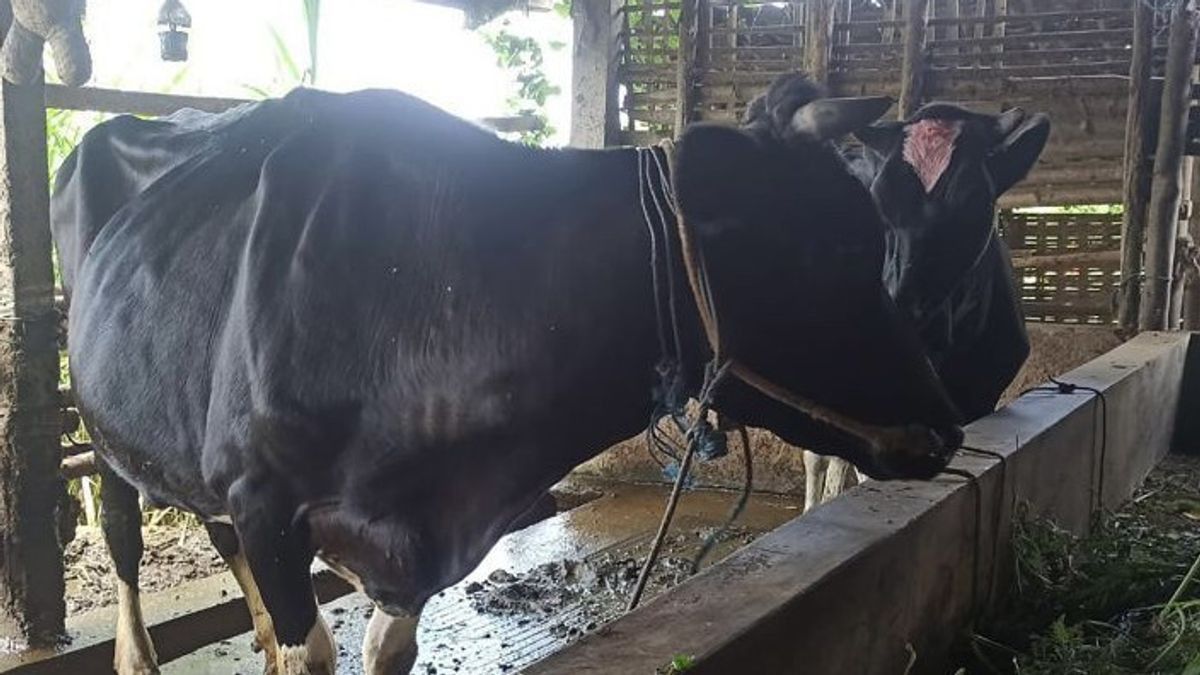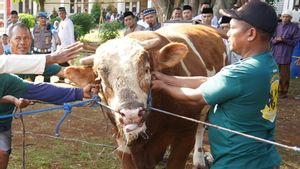JAKARTA - The Dean of the Faculty of Veterinary Medicine (FKH) Universitas Brawijaya (UB) drh Dyah Ayu Oktavianie asked the public not to worry about the Oral and Nail Disease (FMD) epidemic that attacks livestock in several areas in East Java.
"The public does not need to worry, because FMD is not a zoonotic disease and so far there have been no cases of transmission to humans in Indonesia," said Dyah Ayu Oktavianie, Thursday, May 12.
Dyah said that people can still consume beef and cow's milk with perfect processing.
"This is what the public must understand, there is no need to be afraid of consuming meat and milk, but the processing must be done properly, so that the virus becomes inactive," he said.
In an effort to handle and prevent the spread of PMK outbreaks in livestock, FKH UB is ready to contribute through collaboration with relevant agencies and the Indonesian Veterinary Doctors Association (PDHI) East Java II in health checks and livestock treatment activities, as well as education for cattle and goat groups and cooperatives. Village Units (KUD) in the Greater Malang area.
"We are ready to assist the government in handling this FMD outbreak by deploying veterinary medical personnel in the faculty. We will also provide education in the form of Information Communication and Education (KIE) which aims to provide information related to handling livestock affected by FMD," he said.
Dyah added that through the efforts that have been made, it is hoped that there will be no panic that will lead to wrong decisions by breeders or butchers to sell animals affected by FMD at prices below the market price.
"In addition, in KIE we will also provide understanding to the public regarding how to process meat and milk properly, so that they are still safe for consumption," he said.
He admitted that actually Indonesia had been declared free from PMK since the 1990s. The current outbreak may originate from the traffic of livestock or food of animal origin originating from outside Indonesia.
"Therefore, the government is currently imposing regional restrictions, especially livestock traffic in outbreak areas so that the FMD outbreak that has occurred since late April does not spread," he said.
Meanwhile, according to Dyah, for cows that are indicated to be affected by FMD, vitamins can be given to increase body resistance, symptomatic therapy, and antibiotics to treat secondary infections.
"The virus attacks livestock that have low immune systems, and in young cattle it can cause death. Thus, the mortality rate in young cattle or calves is quite high," he said.
The English, Chinese, Japanese, Arabic, and French versions are automatically generated by the AI. So there may still be inaccuracies in translating, please always see Indonesian as our main language. (system supported by DigitalSiber.id)








